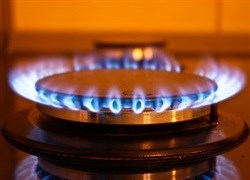
LPG has been identified by the World Bank as the most environmentally friendly of all fossil fuels. An average South African household that switches to LPG for domestic cooking and heating, could save in excess of 120kg of firewood every year. In this country, LPG's main competitor in the lower income market is paraffin, a fuel that has one of the highest carbon footprint of all fuels. Paraffin is also undesirable from a safety perspective - it is linked to thousands of deaths of mainly women and children each year around the world.
One of the challenges of increasing usage of LPG in the broader community, especially in lower income areas, is the perception that it is pricey. People believe LPG is more expensive than paraffin, but in terms of energy consumption - comparing the calorific output of LPG with that of paraffin - LPG is actually cheaper. What is urgently required is relooking the packaging of LPG - smaller 3kg or 5kg bottles, as used in other emerging markets such as India, China and Brazil, will increase the uptake of LPG in these areas.
The price of LPG still needs to be brought down significantly, however. There is a huge disconnect between the international price of LPG and the local price. The maximum retail price in South Africa has been capped by the Department of Energy since 2010, and we currently have the fourth highest priced LPG in the world. At issue is the maximum refinery gate price (MRGP). The price of LPG is linked to the price of gasoline, which is at odds with what is happening internationally. We have been talking about the MRGP for years without any action being taken.
Another issue affecting pricing is the fact that VAT is charged on LPG, but not on paraffin. This is quite frankly, mystifying. To level the playing fields, the Department of Energy and all industry players need to lobby National Treasury to remove VAT on all LPG products - for both domestic and commercial use. In my view, Treasury would do better to introduce a very low surcharge which could be used for a cylinder fund to bring 3kg and 5kg bottles to the market and subsidise them to make them available to lower income individuals at no charge.
To further ensure pricing structures that are affordable to all South Africans, competition in the LPG industry needs to be actively promoted to prevent monopolies. Progress in terms of developing a workable regulatory framework and the enforcement of competitive pricing mechanisms has been very slow, however.
This also has a significant impact on the consistent availability of LPG in South Africa. The world is not short on LPG - in fact, there is an overproduction of around 20 million tons per year. However, South African refineries continue to under-produce, and our local industry requires imports to grow - last year, 16% of the 400,000 tons of LPG consumed in South Africa was imported.
A huge barrier to increasing imports of LPG is the inadequacy of the existing LPG production and supply chain. Import handling and storage facilities are insufficient, and the existing transport infrastructure does not provide economically viable solutions to importers nor to their large industrial users. Competition with regard to import terminals is especially important. But we are still debating how many terminals South Africa should have, which poses a real constraint for companies looking to import gas.
A consistent, cost-effective supply of LPG can only be guaranteed through an investment in South Africa's LPG import, handling and storage facilities, as well as in extended supply chain infrastructure and peripheral industries. This includes rail and road transport systems, cylinder manufacturing and LPG filling plants and well-established consumer distribution networks. It is therefore imperative that we urgently address the current lack of a suitable regulatory framework - one of the key barriers to the development of an efficient and sustainable LPG infrastructure.
A fundamental driver of true economic reform is a government's ability to provide reliable, cost-effective energy solutions to all its communities. In a country plagued by perennial energy challenges - such as South Africa - LPG is ideally poised to meet its citizens' energy needs. If we can address the issues currently impacting the industry, and develop a sophisticated and well-functioning LPG infrastructure, we will be able to make full use of the marvellous opportunity we have to derive the maximum benefits from LPG as a cheaper and more sustainable source of energy - to the ultimate betterment of the broader South African population.
